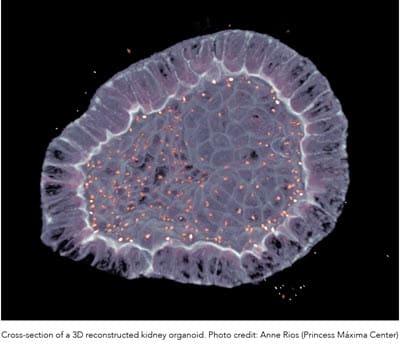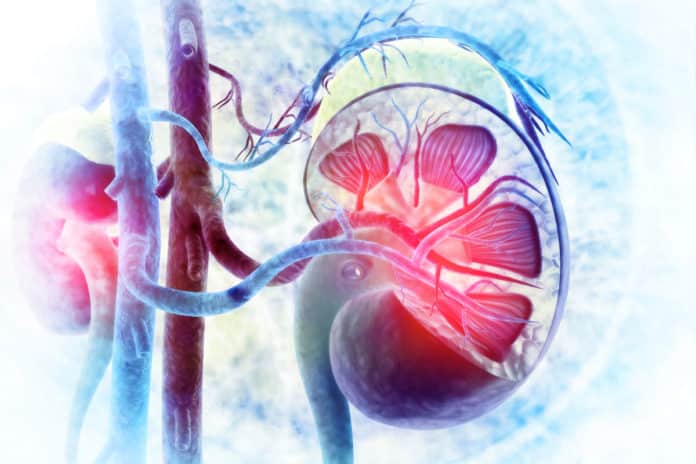--Must See--
Mini-Kidney Developed From Urine Cells By Utrecht Researchers
Scientists from Princess Máxima Center, the Hubrecht Institute, Utrecht University, and University Medical Center Utrecht have Generated kidney organoids using urine cells. This could open doors for a completely new set of treatments which are not onerous for kidney patients.
Thanks to revolutionary developments in stem cell research, the development of pancreases, livers, lungs, and miniature debris are possible in the lab. Recently, by growing pluripotent stem cells, mini kidneys have also been created. In their analysis, adult stem cells were used by the researchers in Utrecht University, directly for the first time, from the individual. Urine Cells proved to be great for this research.

The study of the research was published in Nature Biotechnology on the 4th of March.
A mini-kidney from the lab does not look like a normal kidney. But the simple cell structures shows lots of the qualities of kidneys that are real, so researchers may use them to examine kidney ailments. “We can use these mini kidneys to simulate several disorders: hereditary kidney diseases, infections and cancer, which makes it possible for us to research in detail what exactly is going wrong”, says Hans Clevers, Professor of Molecular
Genetics at Utrecht University and the University Medical Center Utrecht, and group leader at the Hubrecht Institute. “This helps us understand the workings of healthy kidneys better, and hopefully, in the future, we’ll be able to develop treatments for kidney disorders.”
Patients undergoing kidney transplant are at constant risk of contracting a viral disease. Regrettably, at the present time, there’s still no treatment for this. ‘In the lab, we can give a mini-kidney a viral disease which some patients contract after a kidney transplant,’ says Professor of Experimental Nephrology in UMC Utrecht, Marianne Verhaar. “We can then determine whether this infection can be treated using a specific drug. And we can also utilize mini kidneys created in the tissue of a patient with lung cancer to examine cancer.”
“Collaborating in this manner has created a massive difference to our research. We hope that we could enhance remedies for kidney patients. In the long run, we expect to be able to use kidneys that are mini to create a real, working kidney — a liver that is tailor-made. But that’s still a very long way.” said Marianne Verhaar.



























